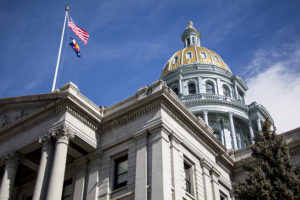One of the most frustrating aspects of American politics is the failure of elected officials to do what they promised. We resent politicians who campaign on an issue – say repealing Obamacare – and seem to forget it after the election.
I know firsthand the rigorous demands of a campaign. One demand faced by conservatives in every election is to name programs they would abolish if elected. They all practice a ready answer, ticking off questionable programs they would abolish: Department of Education, Legal Services Corp., PBS, whatever. But during the last six times Republicans had majorities in either House of Congress, there was no attempt whatsoever to abolish anything. Bills were never even introduced, so the frustration of voters is easy to understand.
For me, it is much harder to understand the similar frustration people seem to feel when politicians do exactly what they said. For eight years, I heard people express disbelief about the intensity of the Obama “war on coal,” and the billions in subsidies lavished on the wind and solar industries. But there was nothing surprising about it. President Obama was pursuing exactly the policies he promised as a candidate.
 Last Friday, a new battle erupted in the Colorado legislature over oil and gas drilling, and many of the State’s top business and industry leaders are crying foul. Some accuse the leadership of rushing the hearings, introducing the bill late Friday so nobody would notice, and other sinister ploys. They may be right about the tactics, but nothing about the proposal itself should surprise anyone.
Last Friday, a new battle erupted in the Colorado legislature over oil and gas drilling, and many of the State’s top business and industry leaders are crying foul. Some accuse the leadership of rushing the hearings, introducing the bill late Friday so nobody would notice, and other sinister ploys. They may be right about the tactics, but nothing about the proposal itself should surprise anyone.
Introduced by House Speaker K.C. Becker and Senate Majority Leader Steve Fenberg, the bill would make what sponsors call “the most meaningful changes” to oil and gas regulations in 60 years. Funny, that is almost exactly what then-Governor Bill Ritter said about “a sweeping overhaul” in 2007. That change turned a century of oil and gas law upside down, but obviously did not go far enough for people who want to stop all production.
Previously, the law assumed that producing energy in Colorado was good for Colorado. The Oil and Gas Conservation Commission, which permits and regulates the industry, operated with a two-fold mission – to “foster development” of the resources, and to be environmentally responsible about it. Because of the highly-technical nature of geologic and chemical issues, members of the Commission had to have expertise in various aspects of the business.
That changed drastically in 2007. The number of Commissioners was increased to reduce industry influence, and specific seats were allocated for local governments, public health officials, and environmental activists. Further, its mission was broadened to foster development of the resource “consistent with the protection of public health, safety, and welfare, including protection of the environment and wildlife resources.”
Even that “sweeping” reform did not kill the golden goose, as some predicted. In fact, production has roughly quadrupled since then. Today, Colorado produces nearly 5 percent of the nation’s oil and is among the top 5 natural gas producing states. That equates to over $15 billion in annual production, and about 38,000 direct jobs, with wages that are twice the Colorado average.
That won’t do, if you oppose the use of oil and gas, and want to rid the State of it. It is true that Colorado voters defeated the severe oil and gas restrictions on last November’s ballot. But they also elected candidates committed to eliminating fossil fuels, including Governor Jared Polis, who campaigned on making Colorado 100 percent renewable by 2040. That doesn’t just mean more wind and solar – it means no oil, gas, or coal. Numerous legislators were elected who supported that goal, leading to single-party control of the Governor’s Mansion and both Houses. So they are now beginning that process – did you think they wouldn’t?
The new proposal would add new roadblocks to oil and gas development, because Senator Fenberg says, “Colorado’s communities simply cannot afford to wait any longer.” The bill will give local government direct regulatory authority, and finally eliminate the Oil and Gas Commission’s mission to “foster” development. It will further limit the industry to only one member of the Commission with a background in geology or chemistry, replaced by members with training in wildlife, environmental protection, soil conservation, and public health. Fenberg says the reforms will “ensure the industry operates in an accountable and cooperative manner,” but of course that is not really the goal.
The goal, for the bill sponsors and the Governor, is to completely stop all exploration, development, production, and use. Exactly as promised.




Comments on this entry are closed.